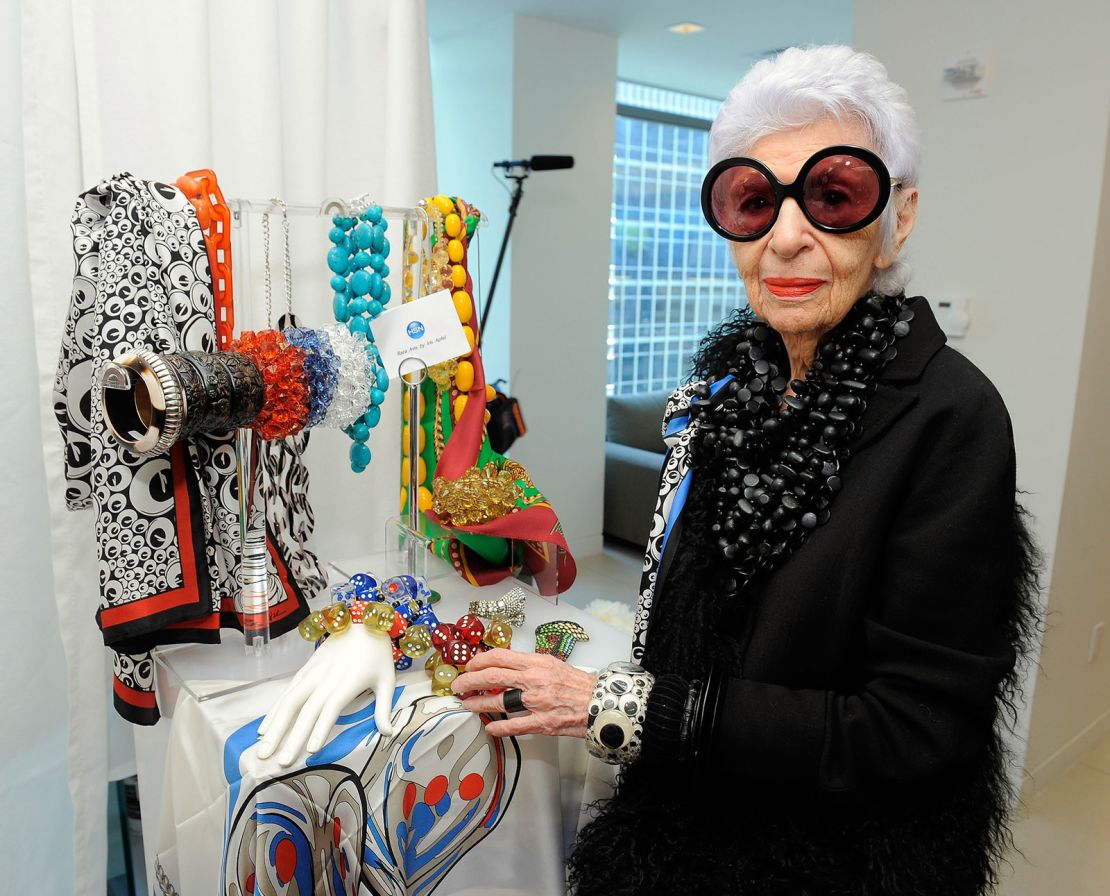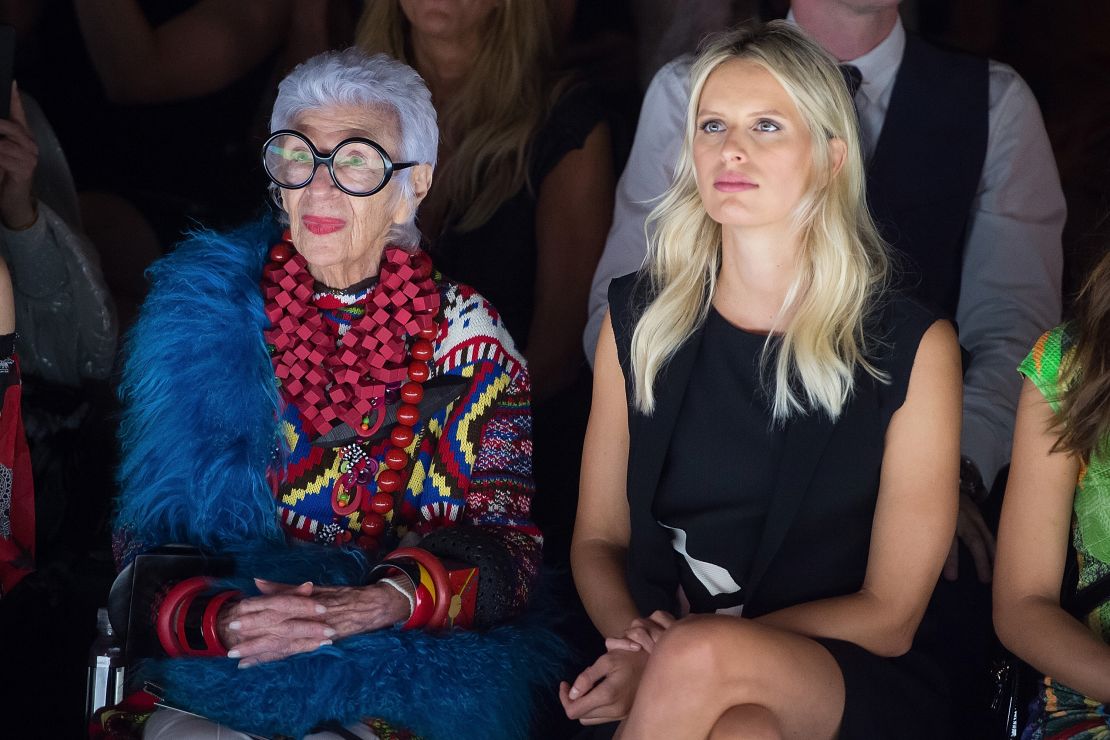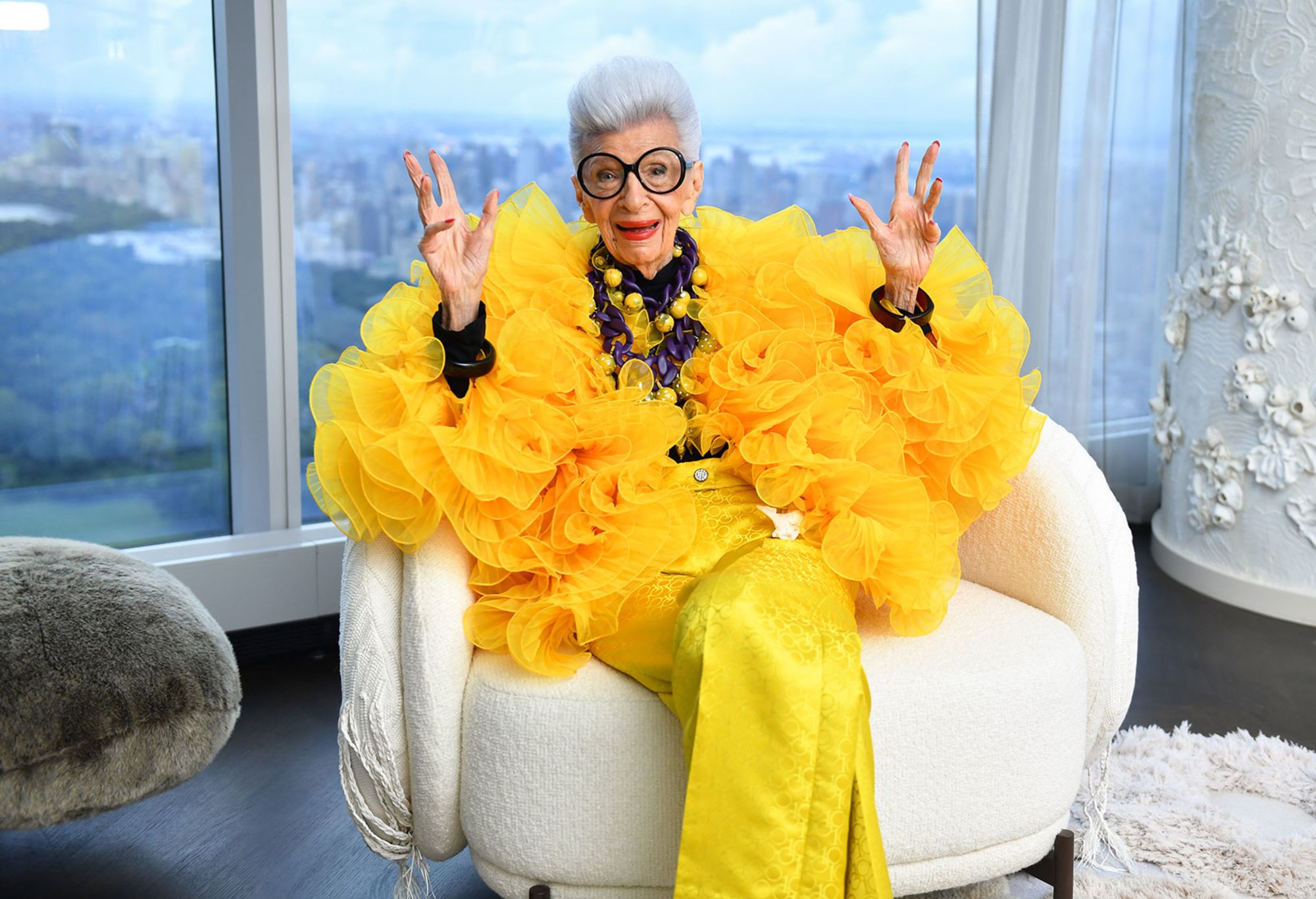Through oversized black-rimmed glasses, Iris Apfel for over a century surveyed the world with the confidence of a woman who rejected convention and set her own style for all.
Apfel died on Friday at the age of 102, according to a post on her verified Instagram page. She died in her home in Palm Beach, Florida, Stu Loeser, a spokesman for her estate, told The New York Times.
The influential interior designer loved chunky accessories, jazz, work and seized every opportunity that came her way, from prestigious art exhibitions to magazine covers, a cosmetic line, a documentary, a modeling contract and a Barbie doll made in her image.
“I go at it full, I’m very passionate about what I do,” Apfel told CNN in an interview in 2018. “I put my heart and soul (into things) and it feeds me. I push myself until I can’t anymore and then come back again for more. I’m a glutton for punishment.”
Born Iris Barrel in Queens, New York, in 1921, she was the only child to Jewish parents Samuel and Sadye Barrel.
She described herself as a black-belt shopper who made her first purchase at the age of 11, when her mother gave her $25 to buy a dress for Easter. It cost $12.95. Matching shoes and a hat cost about another $8. The train trip there and back just two nickels, or 10 cents.
Those were Depression years. She was a bargain hunter, a collector, a hoarder. In 2015, she told Vanity Fair that she still wore the dress she wore on the first date with her late husband, Carl Apfel, some 68 years earlier. He died in 2015, a few days short of his 101st birthday. At the time, she described him as “a very generous man, and a very funny man.”
They married in 1948 and within a few years had founded Old World Weavers, a business which allowed the couple to indulge in their passion for fabrics and travel. They flew between continents to source vintage and antique textiles for client bookings that steadily expanded to include Estée Lauder, Greta Garbo and no fewer than nine US presidents.

“(Styling the White House) was a relatively easy job actually, because everything had to be as close as humanly possible to the way it was,” Apfel told the Guardian in 2015.
That is, until Jackie Kennedy moved in. “She employed a very famous Parisian designer to gussy up the house and make it a real Frenchie, and the design community went bananas. After that we had to throw it all out and start again,” Apfel said.
Lasting influence
Apfel never really retired — she once called retirement “a fate worse than death” — though life was somewhat slower in 2005 when she was approached by New York’s Metropolitan Museum of Art about staging an exhibition of her accessories. She was in her early 80s at the time, and curator Harold Koda had heard she had one of America’s best collections of costume jewelry.
Initially, Koda asked for accessories and jewelry, then for five full outfits, Apfel wrote in her book, “Accidental Icon: Musings from a Geriatric Scarlet.” By the time Apfel, Koda and his Met museum staff had finished exploring her labyrinth wardrobe, cupboards and storage boxes, they left with 300 outfits and hundreds of accessories.
The exhibition, “Rara Avis (Rare Bird),” was the first time the museum had paid tribute to a living woman who was not a fashion designer. It was a hit and Apfel was lauded worldwide as a style icon.
It sent her profile soaring.

In her 90s, she was the face of a Kate Spade advertising campaign, created her own makeup line with MAC Cosmetics and designed her own range of accessories, clothes and furniture for the Home Shopping Network.
She had already been featured in fashion magazines including Vogue Italia and Dazed & Confused when, in 2019, prestigious agency IMG offered her a modeling contract at the age of 97, joining a coterie of leading models including Karlie Kloss, Joan Smalls, Chrissy Teigen and Bella and Gigi Hadid.
She may have had her own label, but Apfel wasn’t motivated by designer names. She was just as happy to rummage through flea markets as high end stores for unusual pieces to pile high on her small frame.
She had 2.9 million followers on Instagram but expressed a disdain for social media.
“It’s too damn nosy,” she told CNN in 2018. I don’t give a damn what you ate, and I don’t care who you’re sleeping with… It’s an enormous waste of time.”
Apfel was once asked to define her attitude to life in just three words. “Only one trip,” she said.
Then she added a few more: “Might as well live it up.”
CNN’s Rob Frehse contributed to this report.






